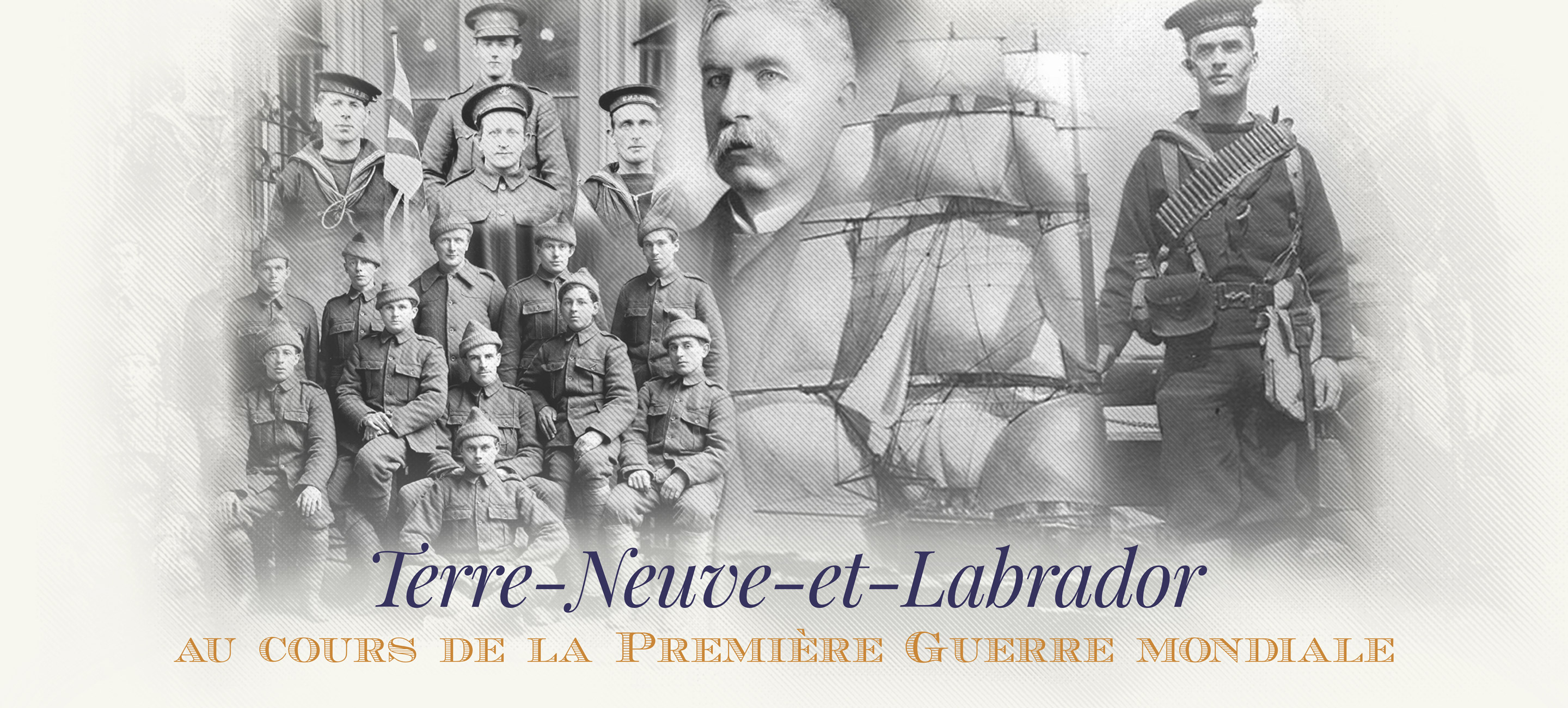Frances Cluett Letter 4
31-3-18
Easter Sunday Morning.
Dear Mother;
I am going to church at 11:15 a.m. for I am so terribly tired. We are awfully busy, nearly killed since this last rush: if this war does not soon end there won't be a man living on the face of the earth. It is brutal, it is cold-blooded murder; it is hell upon earth. Oh! If you could only see and go through what we do mother [sic]; it is enough to drive one mad.
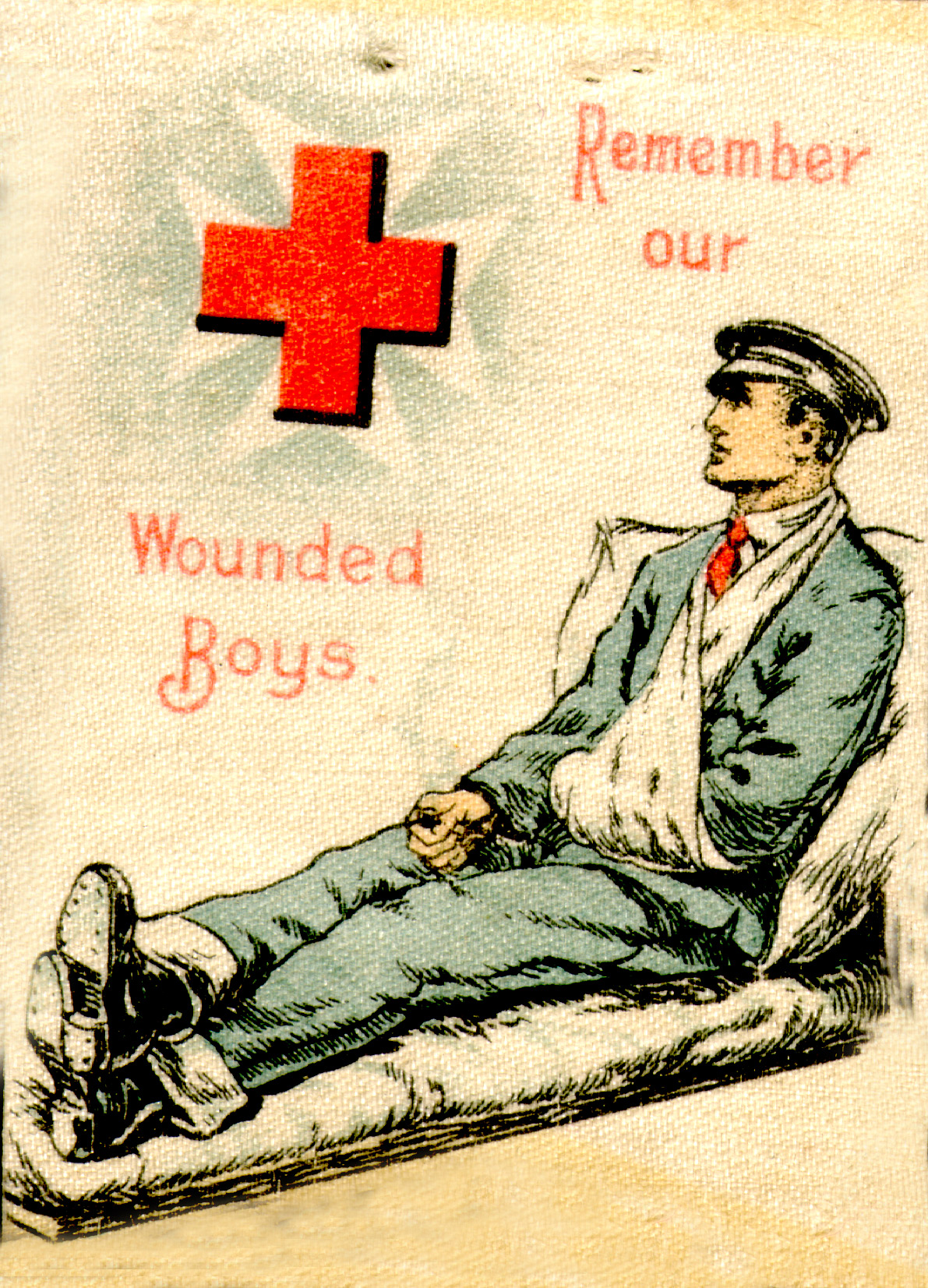
From the Ruby Ayre Album, p. 5. Courtesy of the Archives and Special Collections (Coll-322 1.01), QE II Library, Memorial University of Newfoundland, St. John's, NL.
I am on night duty in the Compound. I shall never forget these days. Convoys are coming in all night long; patients are [? word illegible] in the midst of it. I have four wards worth with a little help once in a while; if this rush continues, some of us will give out altogether.
I came back from "leave" five nights ago; arriving at Rouen 8 p.m. Matron sent me on night duty at 10 p.m. same night: oh! My head was so heavy from travelling: had been on train two days, the second night on train I did not sleep at all, it was so cold.
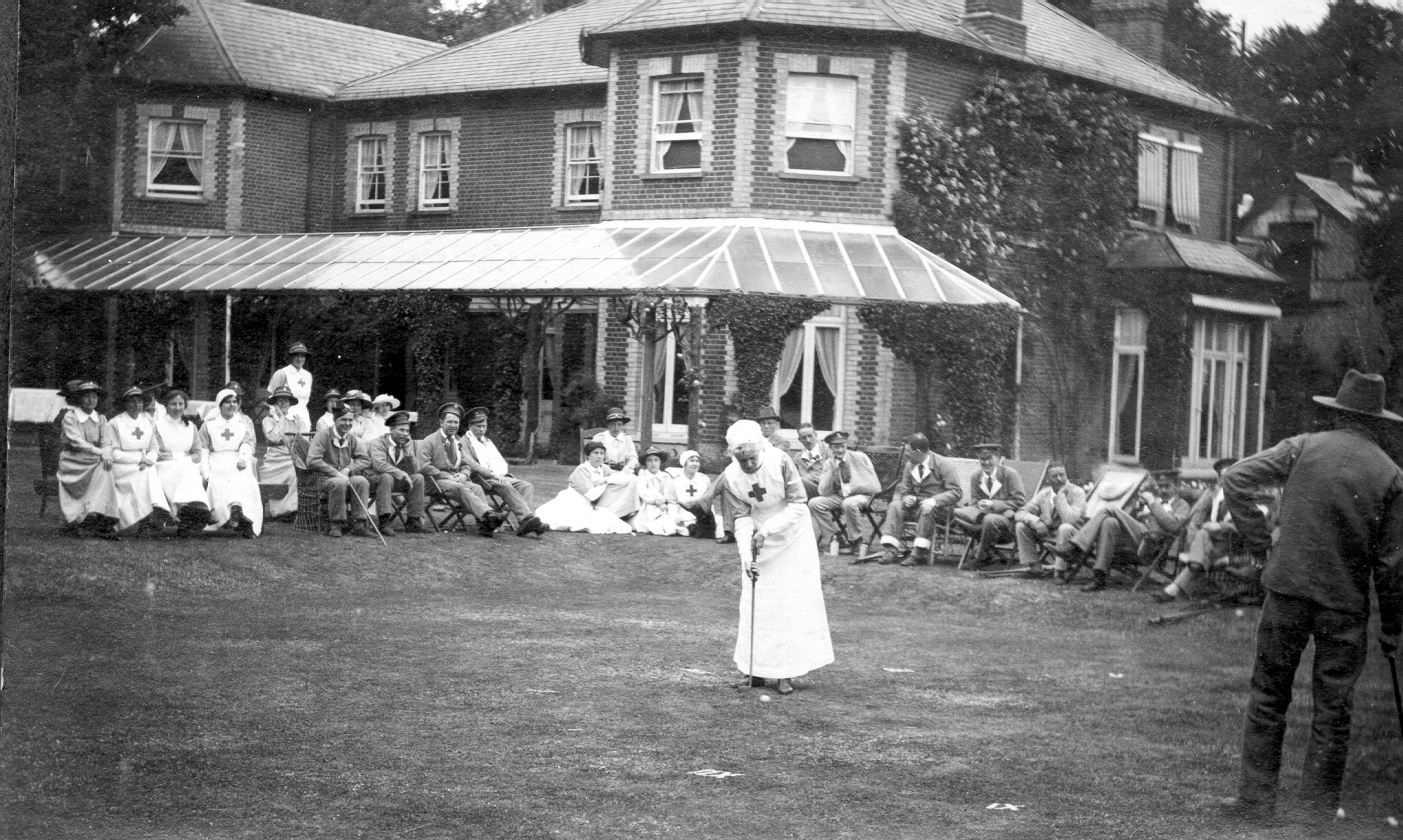
From the Ruby Ayre Album, p 51. Courtesy of the Archives and Special Collections (Coll-322 1.01), QE II Library, Memorial University of Newfoundland, St. John's, NL.
From the train I went on duty at 10 p.m., I did not stop a minute until 8 a.m. next morning, except to have a cup of tea at 12 p.m.
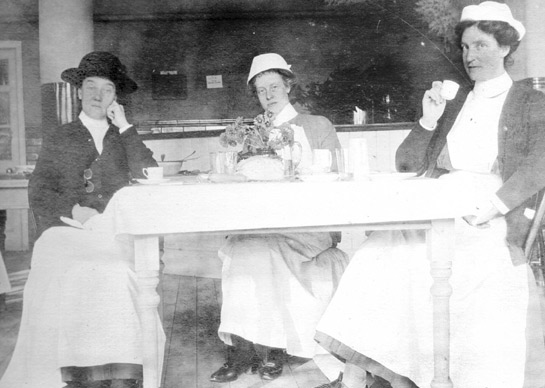
From the Ruby Ayre Album, p 7. Courtesy of the Archives and Special Collections (Coll-322 1.01), QE II Library, Memorial University of Newfoundland, St. John's, NL.
I say again this war is simply horrible. What a blessing some of these boys [sic] mothers do not see their husbands and sons.
Sometimes an orderly comes through to help me a little bit. I have to wait on the patients such as giving them drinks, the bed pans, then perhaps the stretcher bearer comes in for a man to go to the theatre to have his wounds opened, or his hand off, whatever the case may be.
Well! if he is a helpless patient, I've got to try to do the best I can to get him on the stretcher or run for an orderly, or look for Sister to help; then when he is taken away his bed has to be made into an operation bed ready for him again; just as you finish that in comes the stretcher bearers for another one; by the time he is ready to go, the other one is brought back then put on his bed, a vomiting basin given him, and watched at intervals for vomiting, hemorrhages etc.
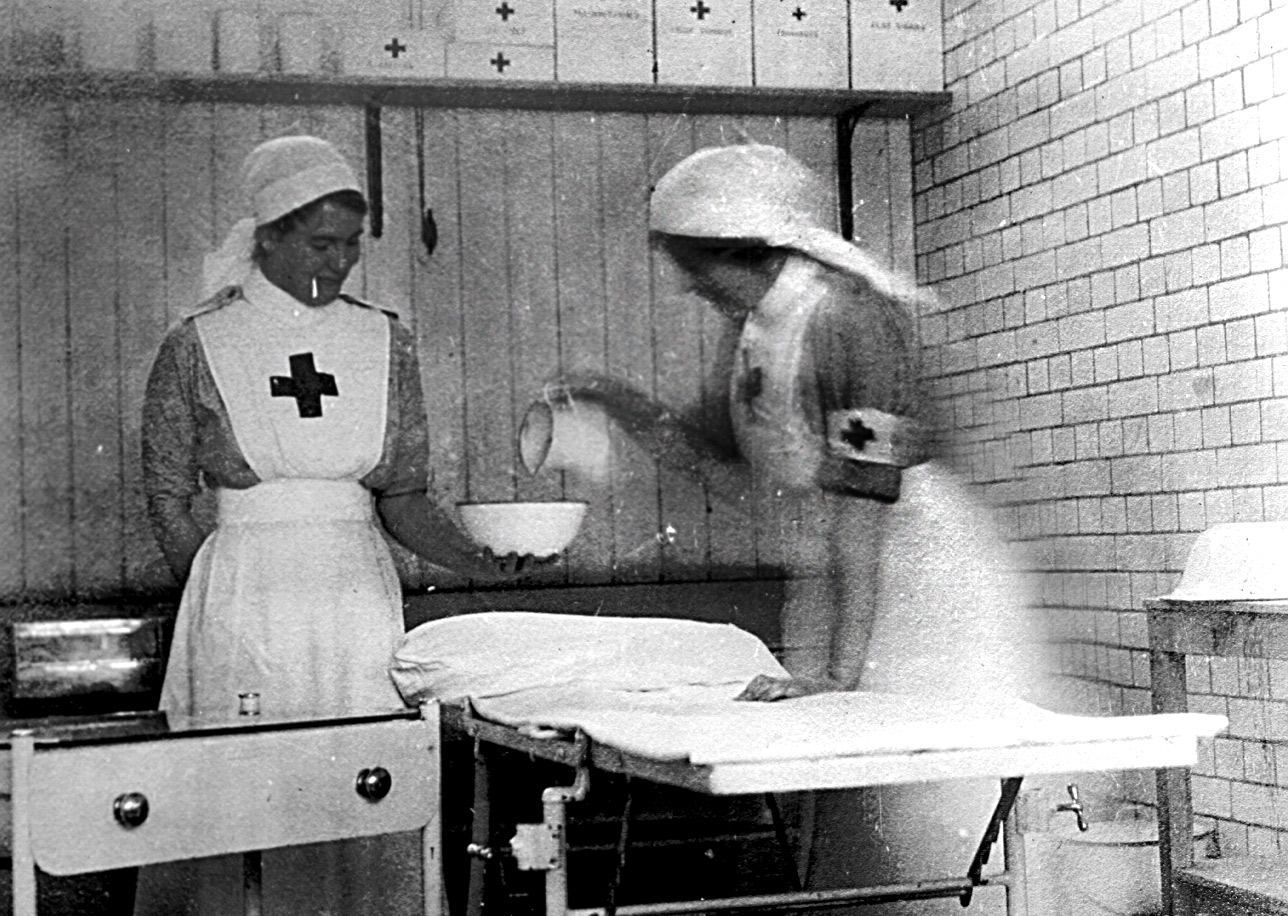
From the Ruby Ayre Album, p 13. Courtesy of the Archives and Special Collections (Coll-322 1.01), QE II Library, Memorial University of Newfoundland, St. John's, NL.
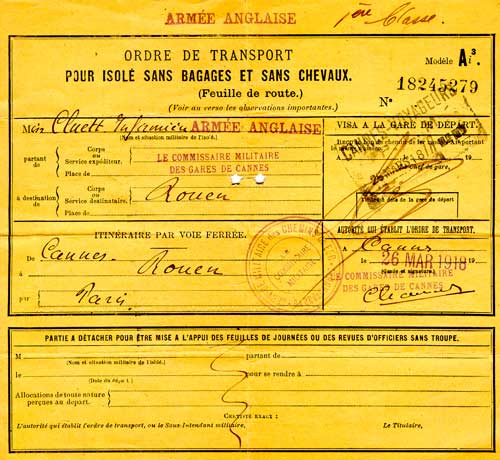
Courtesy of Archives and Special Collections Division (Coll 174 3-01-002), Memorial University of Newfoundland, St. John's, NL.
Then probably we are warned by the Sergt [sic] that a convoy is going out at such a time to England. He names the patients in each ward who are going: I have these to prepare for travelling: I tell you mother its nothing easy to dress a helpless patient, pulling vests, shirts, cardigan, jacket, drawers, pants; sometimes you can only get one leg in the drawers, and only one sleeve of the jacket; then one must see that everything as regards their papers go with them. These papers indicate when they are taken sick, to what hospital they are sent, his name, regiment, rank, where wounded etc; essential papers.
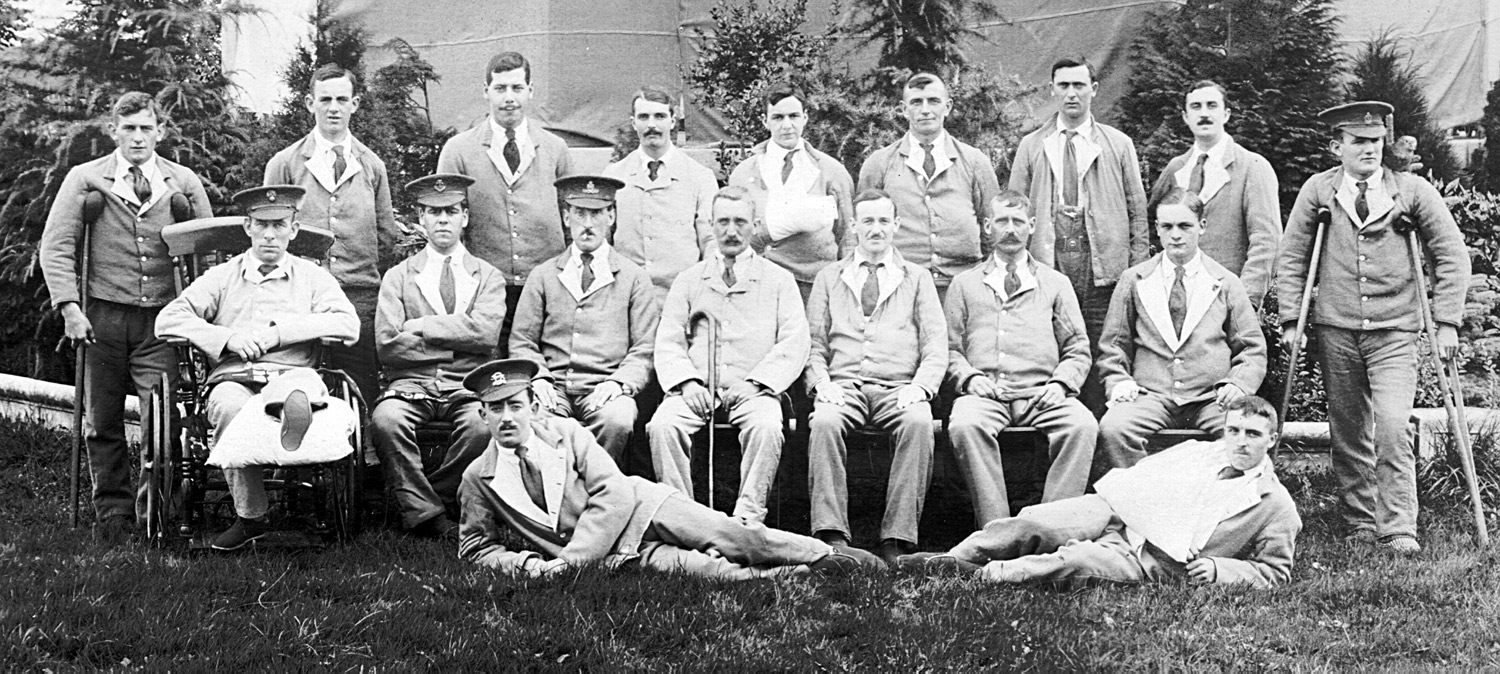
From the Ruby Ayre Album, p 3. Courtesy of the Archives and Special Collections (Coll-322 1.01), QE II Library, Memorial University of Newfoundland, St. John's, NL.
Well, while getting them ready for the stretcher bearers to take them to the reception tent before getting on the travelling boat, perhaps a convoy has just come down from the line; in they come, stretcher after stretcher; oh my! Their clothes have to be cut off; shirts pants and everything, such a state of blood and mud; they are then washed; and one has to handle them very very carefully especially if he shot [sic] in the head. No head case is allowed to sit up at all. Some of them can't see at all, all smashed to pieces; one poor young boy lying day after day with eyes bandaged. Think of them blind for life and so young.
I have been so tired towards morning that I could scarcely walk; the bottoms of my feet are like boils; my first ward on night duty this year was C1. Just as we had one man washed and shrouded ready to be taken to the mortuary, I was sent to another ward to help Sister prepare another for the mortuary. Next evening I was told to watch a man until his last breath went. I never thought mother [sic] that I could do what I have done. I went behind the screen and stayed with him until he died. Oh the pitiful sights, the worn faces: one man asked just before he died when he could see his mother.
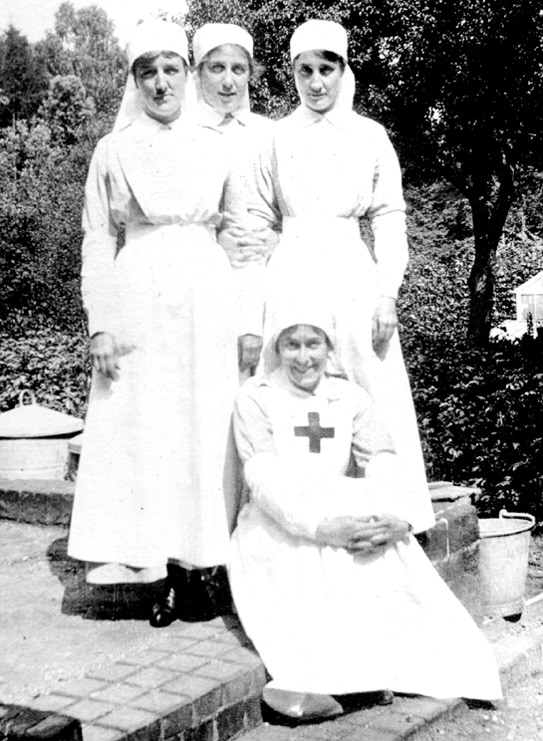
Courtesy of the Rooms Provincial Archives Division (P 49-A1), St. John's, NL.
Next night in the midst of our rush, I was sent to Special a man. He was wounded in buttock, left arm, abdomen. His arm was in "Thomas" splint; that is bound on steel rods: the poor thing was raving at times. We were giving him a saline injection but gave it up: he died about 7 p.m. When I came off duty this morning, one of our patients was slowly fading. You cannot realize mother what we go through.
I have been to church; both going and coming I saw them taking stretchers with the 'Union Jack' over them; you know what that means.
One of the patients was telling me about this last push when the Germans drove them back: he said you could see them coming; as fast as you can knock one down another took his place, there was no end to them, at last they had to retire; the Germans are getting the best of it. Out of one of the boy's battalion, only 9 came back; they tell us it is murder.
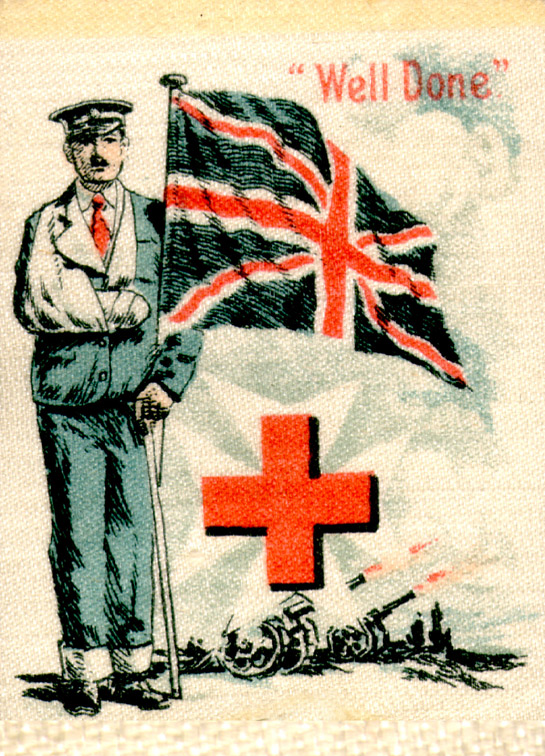
From the Ruby Ayre Album, p. 5. Courtesy of the Archives and Special Collections (Coll-322 1.01), QE II Library, Memorial University of Newfoundland, St. John's, NL.
Of course we get it right from the persons who are engaged in the battle and not from the papers. Another said he just went with his company to dig a trench; they were not fighting men; but found when they had finished, they had to hold the line; and he said he was no good at all, not able to do anything of the kind. One old man got knocked about a bit, he couldn't run he said like the younger ones; poor old chap he must have lain in the cold quite a while; he is so wheezy. The Germans nearly executed them.
To hear the draughts go up the line every evening singing and cheering, band playing. Sister said yesterday it made her blood run cold; they go up never to return, except to come maimed for life. I don't think I have written like this before mother, which plainly says things are much worse.
Paris was shelled from the Germans 75 mile gun. As we came through one street there, the chauffeur showed us where bombs had dropped. Sister Coneys came through Paris yesterday; one shell dropped 20 yards from their ambulance, she was down South when I was there: but I left a few days before. I went into two churches while in Paris; perhaps it might have been one of these that was shelled.
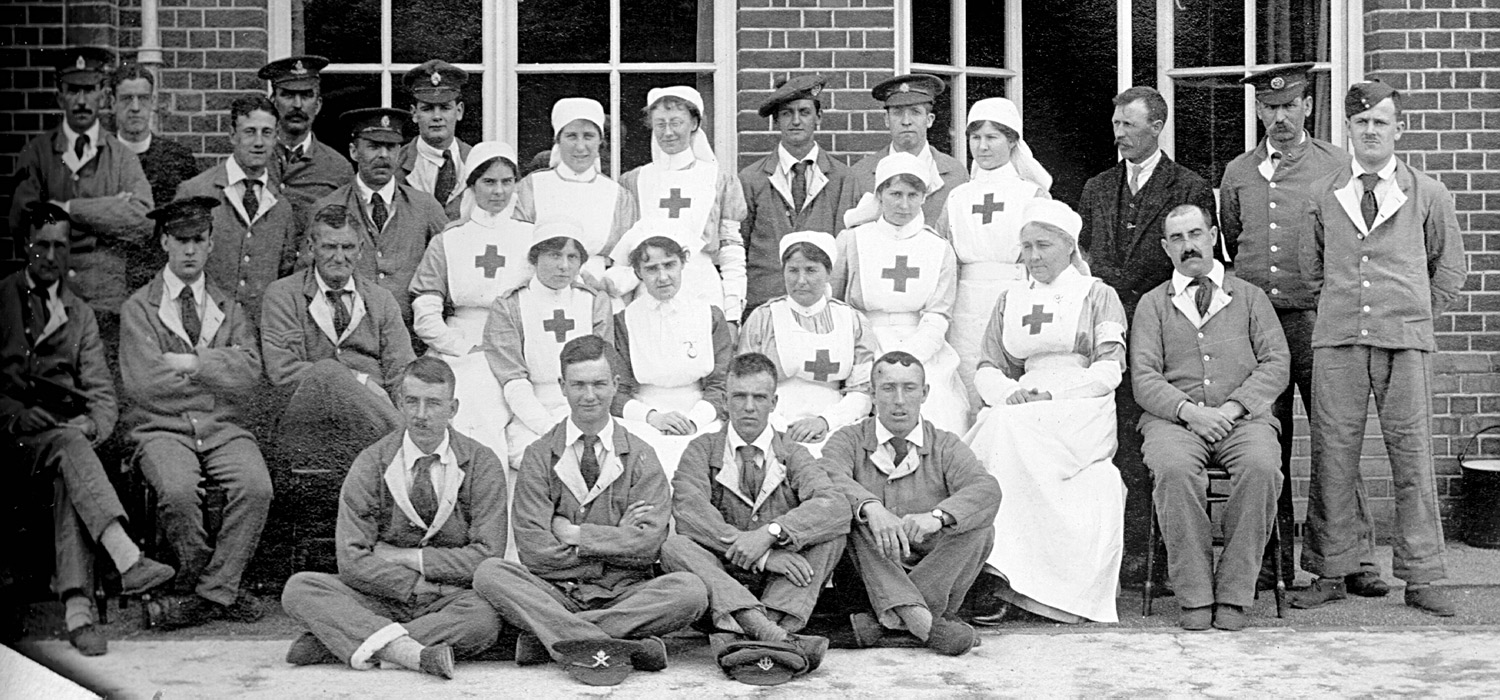
From the Ruby Ayre Album, p 15. Courtesy of the Archives and Special Collections (Coll-322 1.01), QE II Library, Memorial University of Newfoundland, St. John's, NL.
The Casualty Clearing Stations are bombed; we have nearly twenty Sisters, who had to leave for their life, saved nothing only what they wore; shells flying everywhere. They say at one place there are 6000 wounded Tommies waiting to be sent somewhere, walking about in horrid conditions; of course if these C.C.s had not been bombed, we would not have been so busy: this now is like a Casualty Clearing Station.
Boys are dying for want of attention; they cannot be attended to before being sent down here; wounds lying so long of course must kill them. It is horrible mother.
Good bye. Nothing would induce me to give it up mother.
Fannie
Letter Courtesy of the Centre for Newfoundland Studies Archives
(Frances Cluett Collection 174), Queen Elizabeth II Library,
Memorial University of Newfoundland, St. John's, Newfoundland
